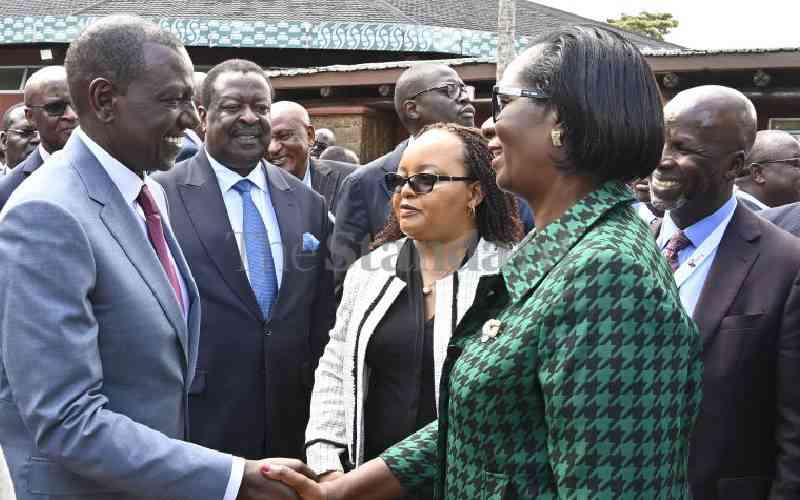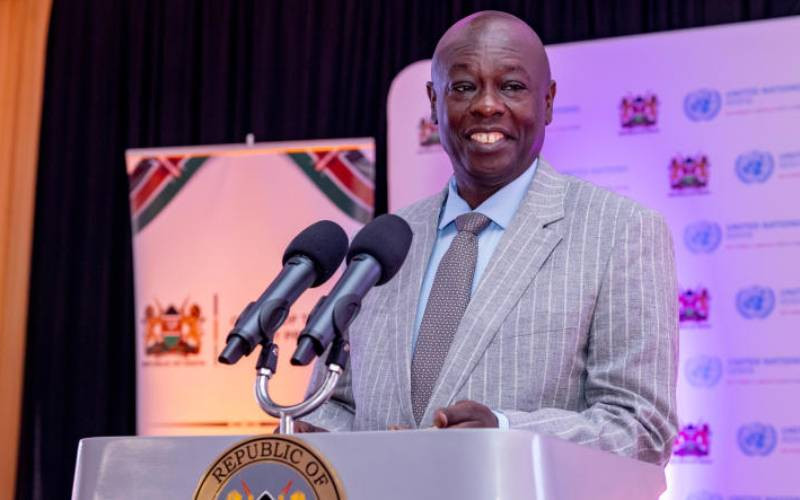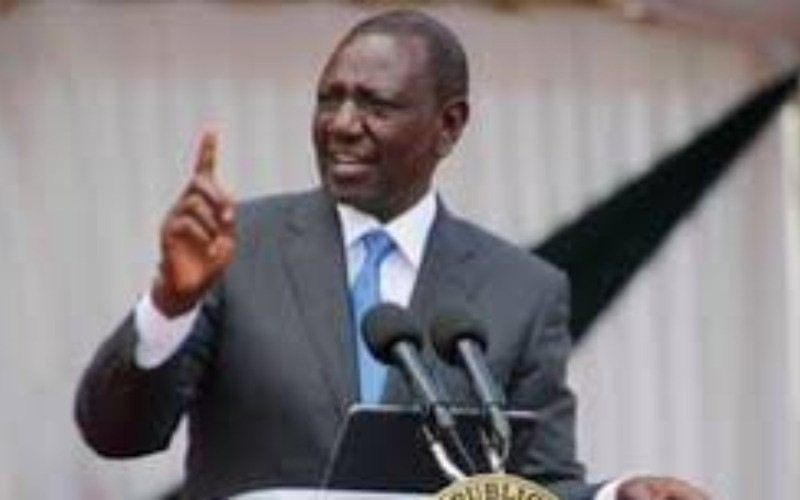By FELIX OLICK
KENYA: Did the Rome Statute Assembly of State Parties hoodwink Kenya that the country’s chief executives would be excused from physical presence at their trials?
This is the legal question some experts are raising after International Criminal Court Prosecutor Fatou Bensouda unveiled a shocker that Deputy President William Ruto must still show up at the ICC and face his accusers in the courtroom.
The Gambian-born prosecutor maintained that Ruto should not be tried in absentia despite recent amendments by the Assembly of State Parties (ASP) that were lauded by African Union as a major diplomatic victory for Kenya’s indicted leaders.
“The state parties amended the rules out of political pressure but in the end totally hoodwinked Kenya by handing over the discretion to the judges to decide only in exceptional circumstances,” said James Aggrey Mwamu, President of East Africa Law Society.
The trial against Ruto, the second in command in the Jubilee administration, is set to resume on Thursday next week. Already, the Trial Bench led by Nigerian Judge Chile Eboe-Osuji have ruled that Ruto must be physically present in court pending a decision on the excusal request.
In her response to Ruto’s request to be excused from the rest of his trial proceedings, Bensouda insisted that the new rules allows for absence from specific hearings only and not unlimited and ‘blanket excusal’ as sought by the DP.
“The request fails on the law and on the facts. It should be denied,” the former Gambian Attorney General and Justice Minister stated in a 20- page submission to the Trial Chamber V (a) on Thursday.
Although the Bench will make a final determination, some international lawyers opine that the celebration by the Kenyan authorities could be short lived.
“I am happy that we have achieved what we wanted to achieve. We wanted the President and his deputy to be excused from trial and we have achieved that through the amendment to Rule 134,” Foreign Affairs Cabinet Secretary Amina Mohammed noted after the ASP amendments late last year.
Mwamu however says that the amendment were meant to forestall the threat by African Union from pulling out of the ICC in mass.
“Having thwarted Kenya’s efforts to give protection to Head of States charged with crimes against humanity they had to be seen to be giving Kenya some look alike victory which indeed is pyrrhic,” noted the lawyer.
But Kibe Mungai, an advocate of the High Court of Kenya disagrees. He says that the amendments as made by the ASP which is the legislative arm of the ICC should be respected.
Key amendments
“In my view, presence in Court now becomes the exception and not the rule,” Mr Mungai maintained. “The amendments were made to allow those in high office to continue discharging their duties as they undergo trial,”
Stay informed. Subscribe to our newsletter
During the annual ASP conference in The Hague from November 19 to 28 last year, the 122 States amended Article 134 of the Rules of Procedure and Evidence in a move that was seen as ‘saving’ Ruto and his boss, President Uhuru Kenyatta from being confined to the ICC Courtroom.
Attorney General Githu Muigai and the Foreign Affairs Cabinet Secretary led the Government delegation that relentlessly lobbied for the amendments.
One of the rules allows defendants who have “extraordinary public duties at the highest national level” and who are not the subject of an arrest warrant to ask judges for leave of absence from their trial, so that they are represented instead by their lawyers.
A second rule change allows a defendant who needs to attend under a “summons to appear” to follow trial proceedings via video-link rather than be physically present in the courtroom.
But Bensouda says that the interpretation of Article 134 by Ruto’s Lead Counsel Karim Khan is inconsistent with the ICC founding treaty, the Rome Statute. “The Request is contrary to the plain text of Rule 134quater, which establishes a procedure through which certain accused with “extraordinary public duties” may apply for absences only from “specific hearings”. Thus, the Request must fail from the outset, since what it seeks is a blanket excusal,” she argued.
Clair Duffy of International Bar Association agrees that the excusal provided for in the amendments is applicable under special circumstances only.
“The ASP has simply passed certain amendments to the laws to make it clear that the Trial Chamber has a legal basis for allowing the President and his Deputy to participate in their trials via video-link under certain circumstances,” she told The Standard on Sunday.
Ruto plea
If the Ruto plea is rejected, it would be a double blow since his boss is likely to escape the ‘jaws’ of the global Court. The Kenyatta case was due to get underway on 5 February but the Prosecution has requested a three months adjournment saying she lacks adequate evidence.
In his application to the three-judge bench, Mr Khan argued the ASP had clarified the legal issues regarding attendance of Court proceedings, opening a window for Mr Ruto to be absent from the trials.
However, Bensouda says that even if the amendments could be read to authorise a blanket excusal, such a construction would be ultra vires the Rome Statute and hence unenforceable.
Mwamu conquers that Article 63 provides for an accused physical presence in Court and since the Statute was not amended, the two leaders would still be required in the Courtroom.
Bensouda also grounded her reasoning from the ICC Appeals Chamber ruling which overturned Ruto’s earlier conditional excusal from the trial bench.
“The first limb (of the Appeals Chamber ruling) demands that the absence of the accused “must not become the rule”. By allowing Mr Ruto to be absent for the remainder of his trial, his absence would - inescapably - become the rule,” she stated.
 The Standard Group Plc is a
multi-media organization with investments in media platforms spanning newspaper
print operations, television, radio broadcasting, digital and online services. The
Standard Group is recognized as a leading multi-media house in Kenya with a key
influence in matters of national and international interest.
The Standard Group Plc is a
multi-media organization with investments in media platforms spanning newspaper
print operations, television, radio broadcasting, digital and online services. The
Standard Group is recognized as a leading multi-media house in Kenya with a key
influence in matters of national and international interest.
 The Standard Group Plc is a
multi-media organization with investments in media platforms spanning newspaper
print operations, television, radio broadcasting, digital and online services. The
Standard Group is recognized as a leading multi-media house in Kenya with a key
influence in matters of national and international interest.
The Standard Group Plc is a
multi-media organization with investments in media platforms spanning newspaper
print operations, television, radio broadcasting, digital and online services. The
Standard Group is recognized as a leading multi-media house in Kenya with a key
influence in matters of national and international interest.









